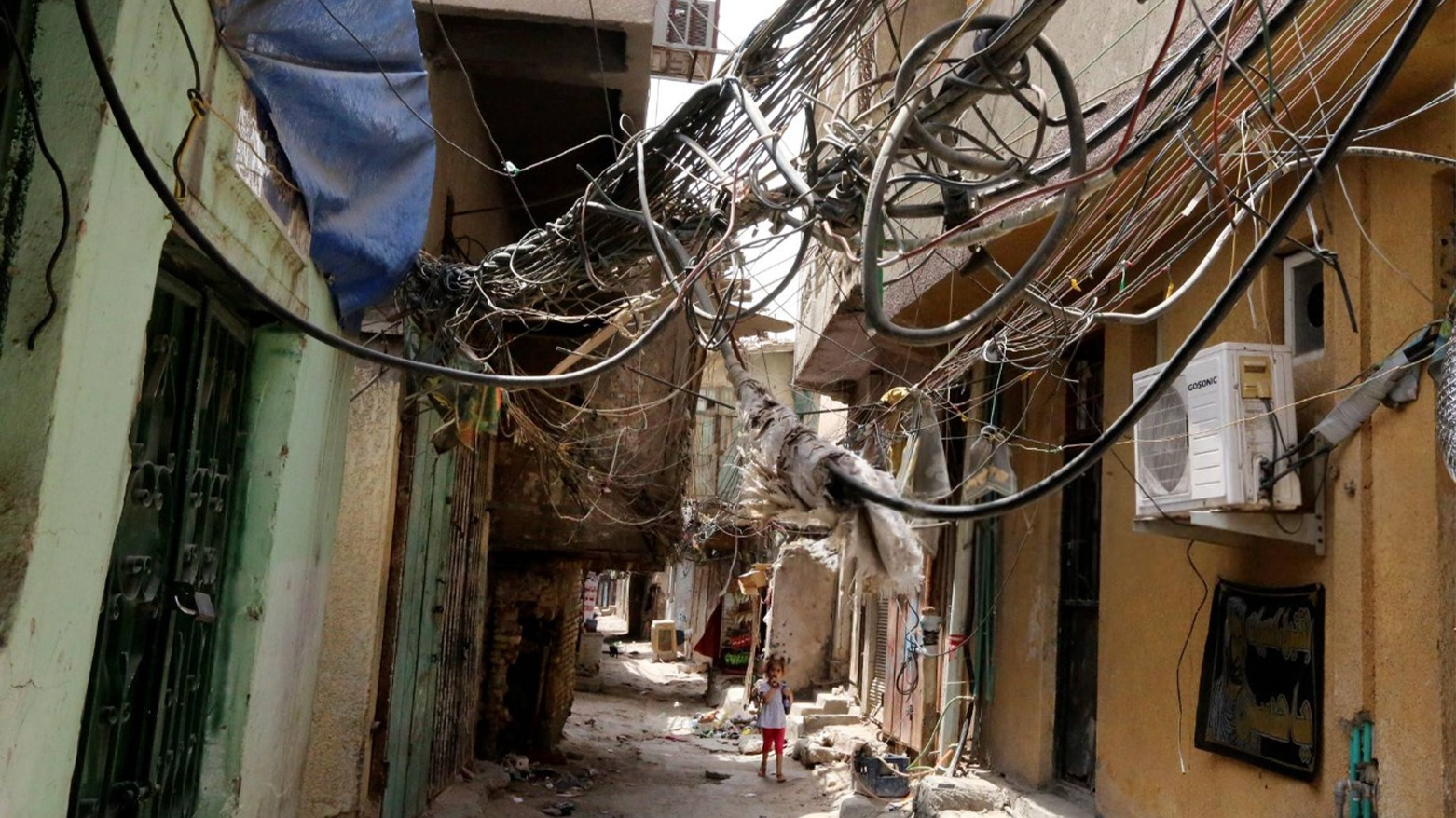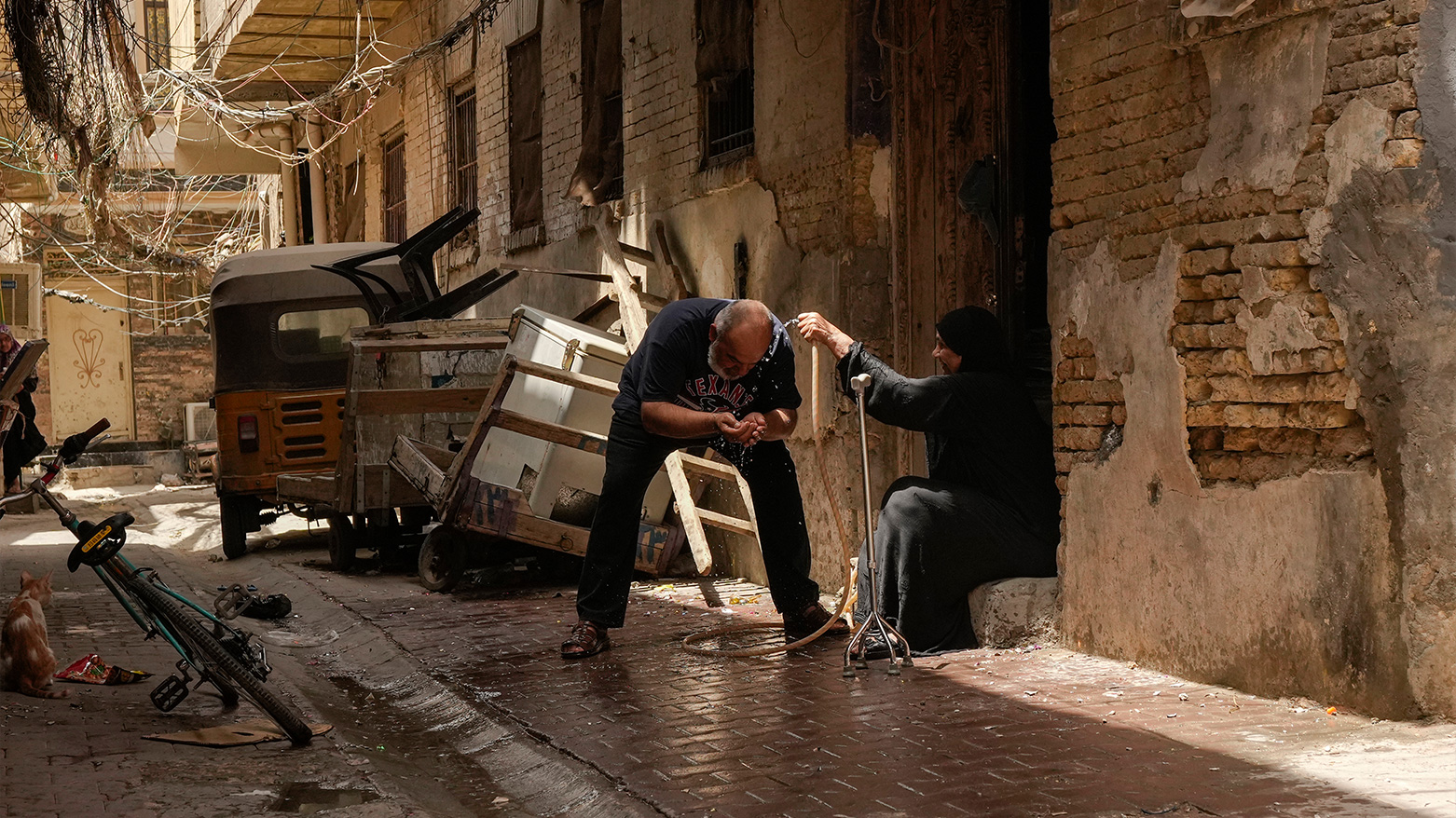'One Hour of Electricity, Three Hours of Blackout,' Iraqi MP from Diyala
Iraqi MP Salah l-Tamimi warned of severe electricity inequality in Diyala, revealing the province receives only 600 megawatts—far below promised levels—leaving residents with just six hours of power daily amid soaring summer temperatures.

By Kamaran Aziz
ERBIL (Kurdistan24) — Salah Mahdi Salman Zaini al-Tamimi, a member of the Iraqi Parliament from Diyala, has raised alarm over what he described as "clear inequality" in the distribution of electricity to Diyala Province, accusing authorities of failing to honor commitments made to alleviate the region's chronic power shortages.
Speaking to local Iraqi media, Tamimi emphasized that Diyala requires at least 2,100 megawatts of electricity to serve its cities and villages adequately. However, he revealed that in prior negotiations with the Iraqi Minister of Electricity, it had been agreed that 1,100 megawatts would be allocated to the province, with an additional 100 megawatts earmarked for emergency use.
"What is happening now does not reflect this agreement," Tamimi stated, explaining that Diyala's actual share of electricity barely reaches 600 megawatts. The result, he said, is a dire situation where residents receive no more than six hours of power daily, enduring a punishing cycle of one hour of electricity followed by three hours of blackout. In stark contrast, some other Iraqi provinces reportedly enjoy up to 20 hours of continuous electricity.
The parliamentarian called for an immediate reassessment of Diyala's allotment from the national electricity grid, insisting that at least 1,000 megawatts—plus an emergency reserve of 100 megawatts—be delivered without delay to help the population cope with intensifying summer heat.
Diyala's electricity woes are symptomatic of broader systemic issues plaguing Iraq’s national power infrastructure. As highlighted in a Kurdistan24 report dated March 18, 2025, Iraq, despite being one of the world's largest oil producers, remains heavily dependent on imported energy, particularly from Iran. The country has spent over $60 billion on the electricity sector since 2003, yet continues to suffer from rolling blackouts due to rampant corruption, mismanagement, and deteriorating infrastructure.

A woman spray a man with a water hose during a heat wave outside his home in the al Fadhil neighborhood in Baghdad, Iraq, Thursday, July, 6, 2023. (Photo: AP/Hadi Mizban)
According to the report, Iraq imports approximately 50 million cubic meters of gas per day from Iran, costing the country between $4 and $ 5 billion annually. These imports account for about a third of Iraq’s electricity generation. However, frequent supply disruptions, caused by political disputes, unpaid debts, or technical issues, have led to repeated power shortages across the nation.
Efforts to diversify Iraq's energy sources have gained momentum following the expiration of U.S. sanctions waivers allowing continued imports of Iranian gas. According to Kurdistan24's March 8 report, Baghdad has sought alternative suppliers, including Qatar and Oman, but infrastructural and logistical hurdles have impeded rapid transition.
Meanwhile, Turkiye has emerged as a significant new partner. In an agreement announced in March 2025, Turkiye agreed to double its electricity exports to Iraq, providing 600 megawatts and planning deeper integration of their electricity grids. According to the Kurdistan Regional Government (KRG), these agreements will also benefit historically underserved regions like the Kurdistan Region and Mosul.
At the regional level, the Kurdistan Region has pursued independent reforms. As Kurdistan24 previously reported, the Runaki Project, initiated by Prime Minister Masrour Barzani, aims to provide 24-hour electricity across the Region by 2026. The project has already significantly improved electricity access in Erbil, Sulaimani, and Duhok.
Yet, despite these developments, deep-rooted corruption continues to plague Iraq’s energy sector. According to a Kurdistan24 report from January 26, 2025, Iraqi citizens have voiced profound frustration over widespread government corruption, with the Iraqi Federal Commission of Integrity perceived as ineffective. Citizens blame corruption for the chronic lack of basic services, including electricity.
The ongoing crisis reflects a broader systemic failure in Iraq’s governance. As summer approaches and temperatures soar, provinces like Diyala find themselves on the frontline of a national struggle, grappling not only with electricity shortages but also with the legacies of corruption, political dysfunction, and fragile infrastructure.
Without swift and comprehensive reform and genuine commitment to equitable distribution, Diyala’s plight may soon mirror the wider collapse of Iraq’s energy ambitions, leaving millions vulnerable to the searing consequences of governmental negligence.